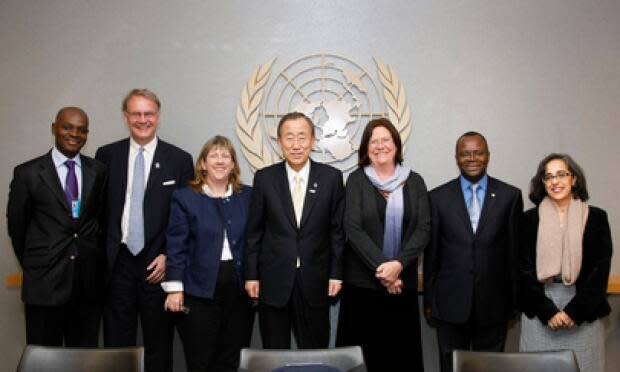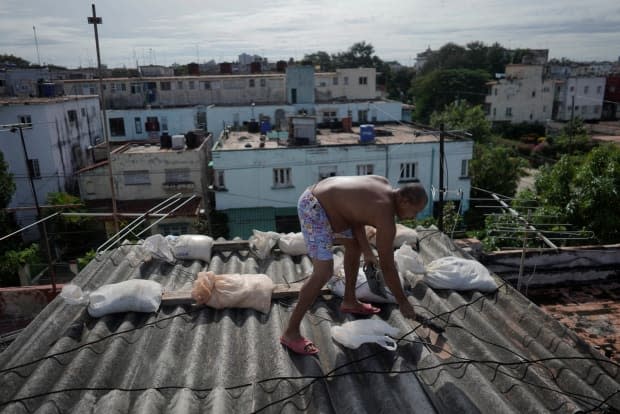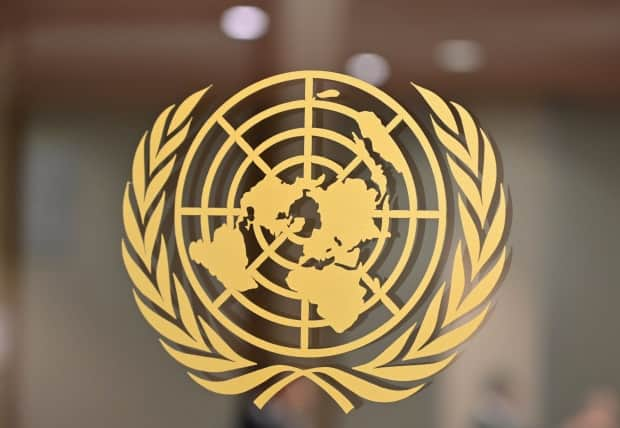New Brunswick native leaves behind the '24-hour clock' of the UN to come back home
When New Brunswick native Susan McDade decided to retire from an almost 30-year career with the United Nations, she was the highest ranking Canadian in the United Nations Development Programme.
As an assistant secretary-general with the UNDP, she was responsible for 17,000 people in 130 countries, with a budget of $5 billion.
But as a single mom of two teenagers, being "on planes all the time" was taking its toll.
So she came to a decision.
"The UN could find another person," McDade said in an interview back in her hometown of Rothesay, "My kids can't find another mother."
The full circle journey took McDade around the world, but it began in the community of Renforth, now part of Rothesay, with parents who encouraged her to give back.

Even they were surprised when, at 16, she applied to finish her high school education at the Lester B. Pearson United World College of the Pacific in Victoria.
Growing up in Renforth, McDade said, the only immigrants she knew were educated professionals. They were doctors and engineers, and she thought it would be interesting to attend school with students from 70 different countries.
She calls her two years there "life-changing."
She left school confident that she wanted to pursue work in the international field and studied economics and international affairs at the University of Guelph, then got a master's degree at the International Institute for Social Studies in the Netherlands.
After an internship at the UN sponsored by the OECD, McDade accepted a job at the UN in 1991, and her first field posting was eye-opening.

Fluent in Spanish, she was sent to Guatemala, then in the throes of a 35-year civil war.
'Very scary' posting
"It was a very scary first posting," McDade said.
"If you were an Indigenous person, you were labelled a terrorist," she said, adding that the country had descended into lawlessness.
"You had no trust in the police, no trust in the army, no trust in the armed militias."
It was a country where the simplest of daily events could put you in harm's way.
"We got a flat tire in a mountainous region," McDade recalled, "And I thought 'If we don't get this tire fixed we're going to get killed.'"
After a year in Guatemala, she was moved to China for a four-year stint in the mid-90s.
That brought her to New York, where she would spend the next decade as a UN administrator, focused on energy issues.
But while the work in New York was interesting, she missed field work, which she said meant having clear goals and the ability to see the results of your work, and she wanted to get back to Latin America.
By this time, she was a single mother with a young son and pregnant with her second child.
That would have likely disqualified her from postings in most of Latin America, where the Catholic Church still holds great influence on society.
Fortunately, the posting she received was Cuba, a country McDade said is much more liberal.

She also believes being Canadian and having a recent posting in China likely helped in Cuba's acceptance of her posting.
Her experience in Cuba was very different from what she saw in that first posting in Guatemala.
"The Cuban government is very clear on what constitutes human development. They want every child educated, every child vaccinated," McDade said.
She also said Cuba is the best-prepared country in Latin America to deal with natural disasters.
McDade continued to work in Latin America until her recent job with UNDP, which brought her back to New York.
But with a boy in high school and a girl in middle school, she began to think it was time to slow down and spend more time with her children.
So early last year, she made the decision to retire from her position and move back to her hometown. She is living less than a mile from the house she grew up in.

The timing of the move couldn't have been better, leaving New York just weeks before the pandemic hit North America in force.
McDade said that had she stayed, her job, which was focused on global business continuity, would have become all-encompassing.
"My kids wouldn't have seen me — ever," she said.
And she and her family would have been in ground zero of the first wave of the U.S. COVID-19 fight.
"I feel like I won the lottery every day."
Not easy, but satisfying work
For people considering her line of work, McDade said they need to make sure they're prepared.
If you don't have a skill, like medicine or engineering, get a good grounding in politics, history and economics, she said
And understand it's not just volunteerism.
The job takes its emotional toll, on you and the people around you.
"It's very hard on relationships, I know very few who had relationships that lasted," McDade said.
"You're away from your roots and your family and it's a 24-hour clock. We always had an office open somewhere."
Despite all that, McDade said, once her children get out of school and off to university, the job could lure her back.
"Who knows," she said, "I'm pretty young to be retired."

